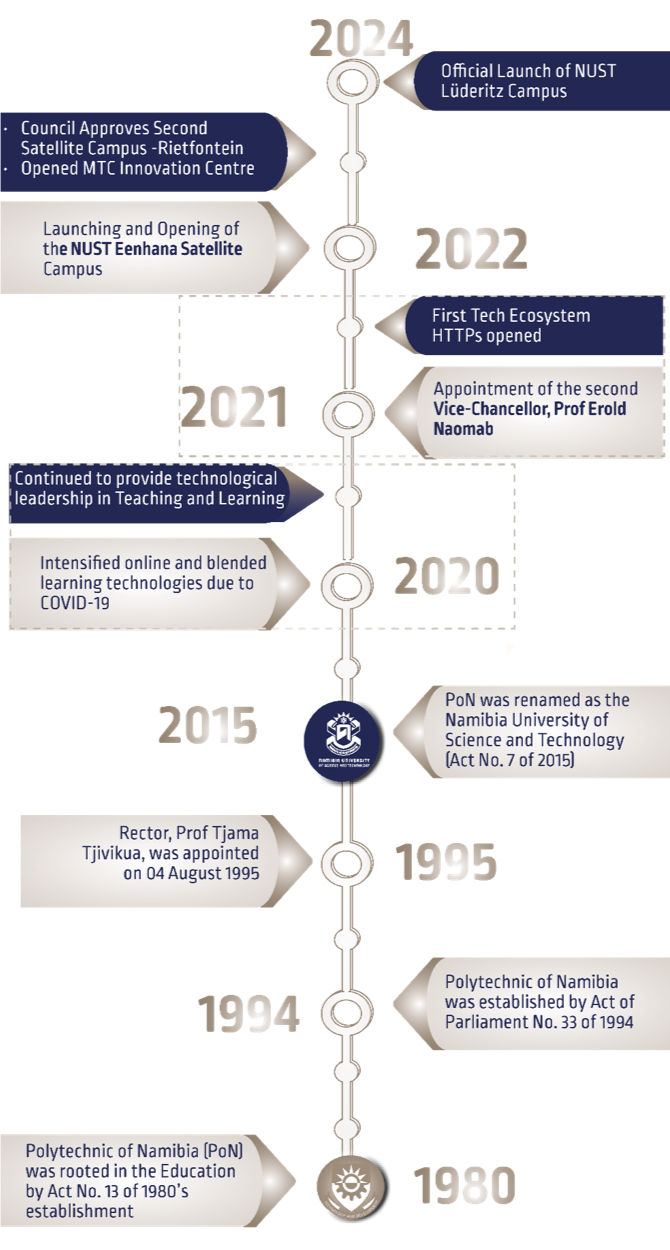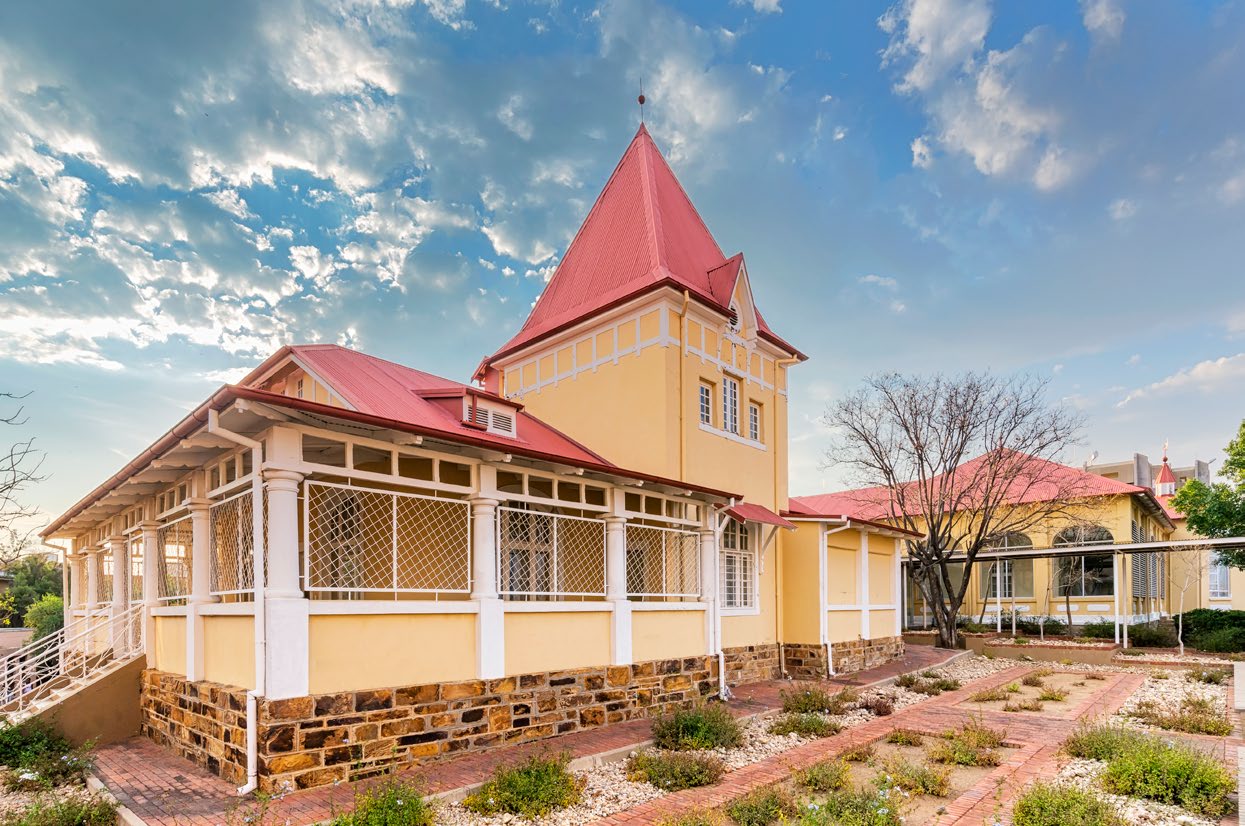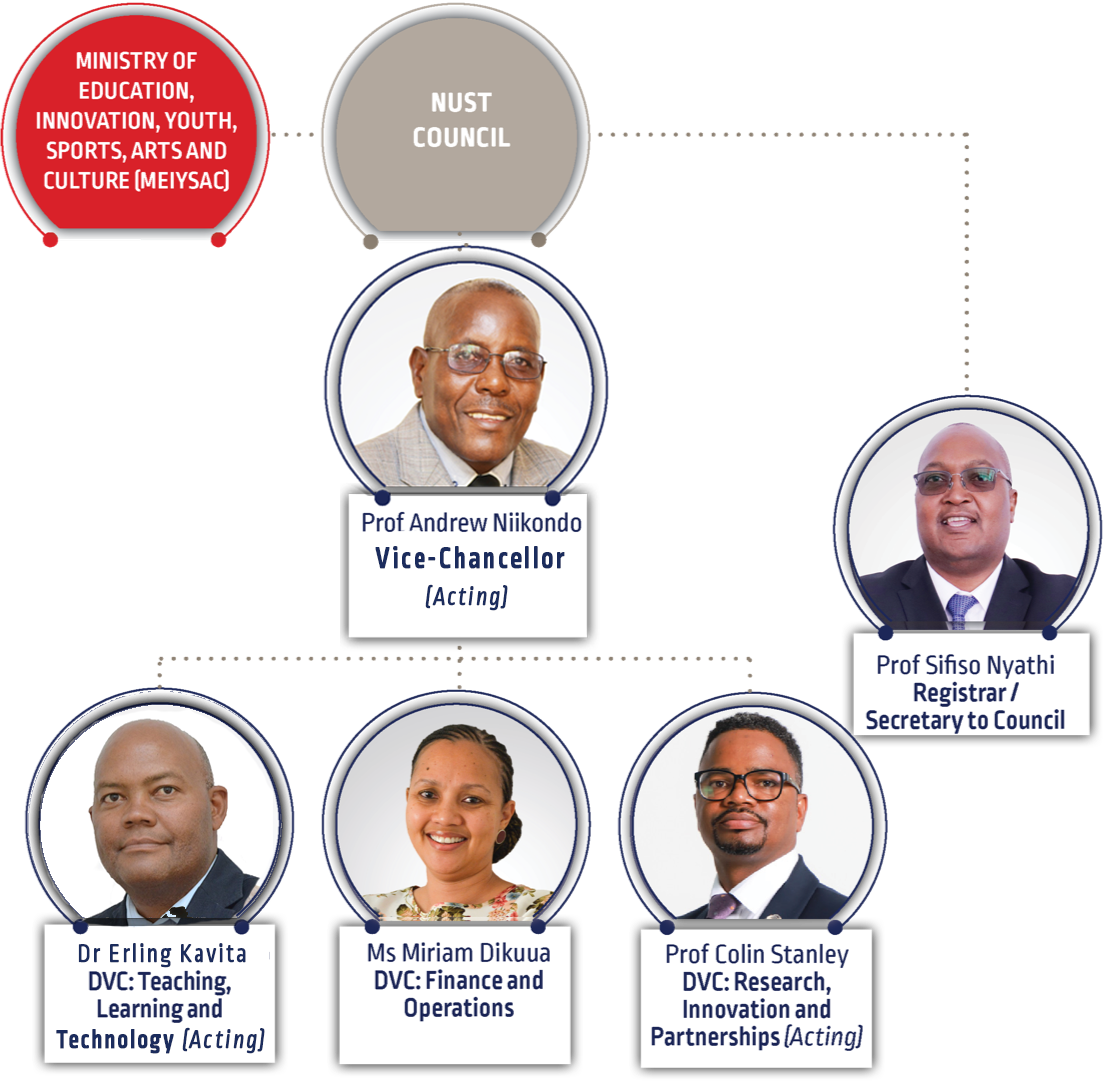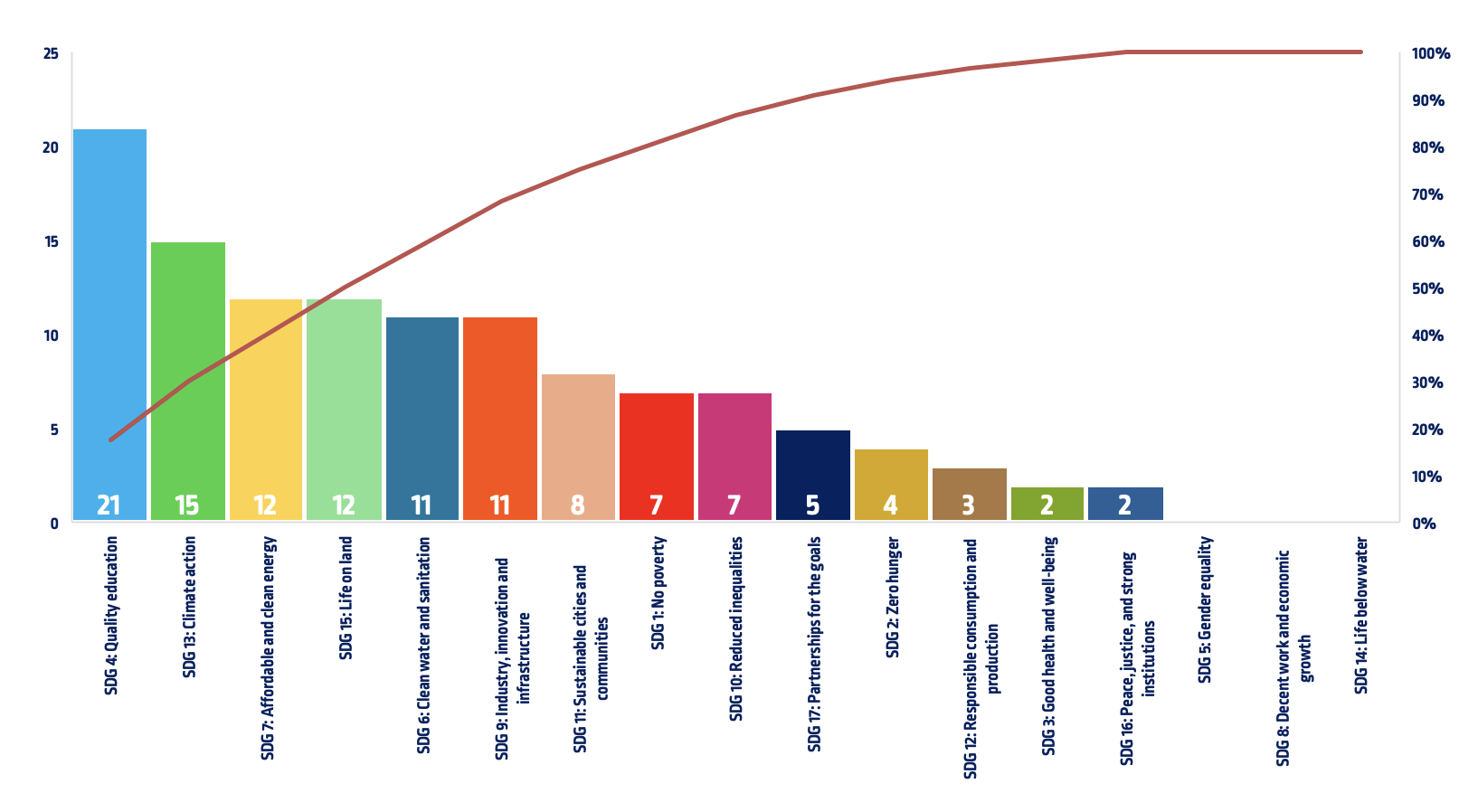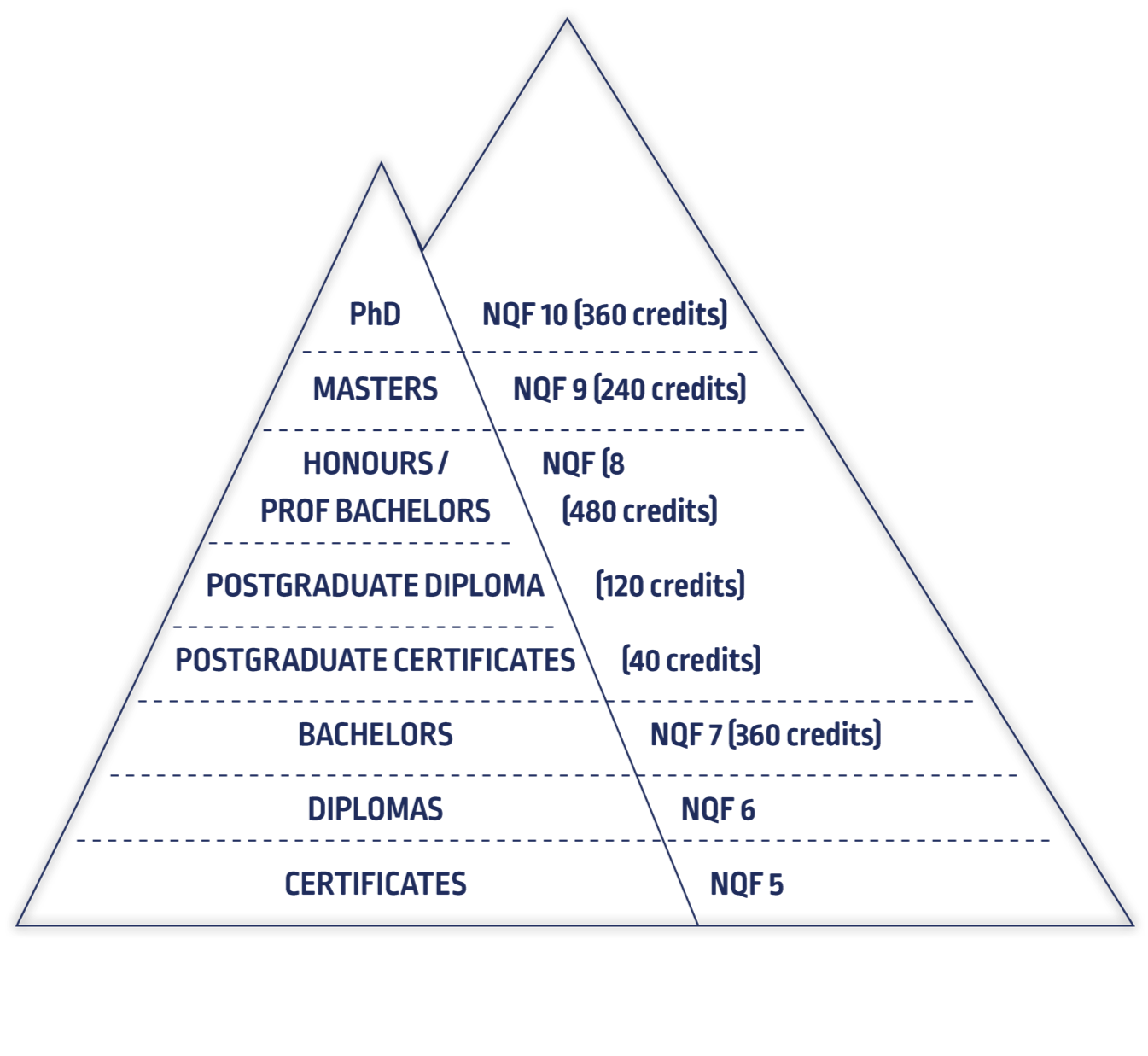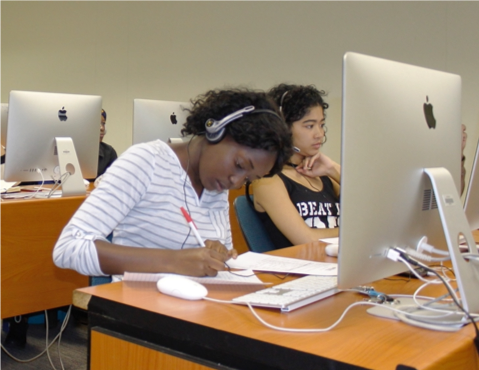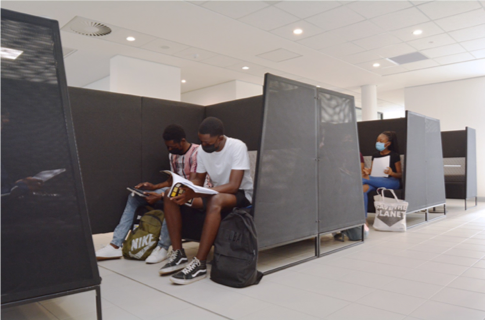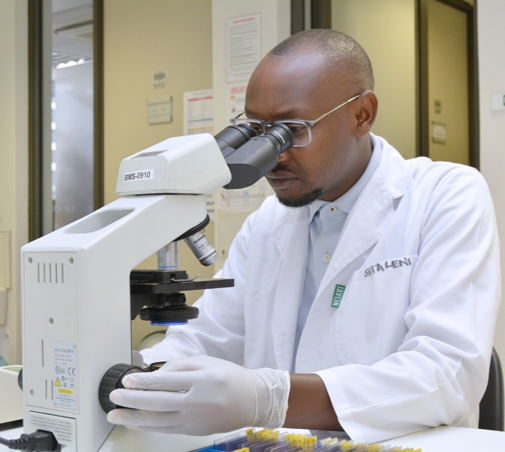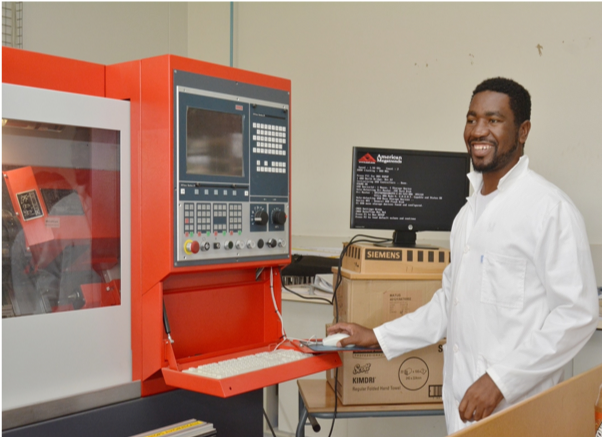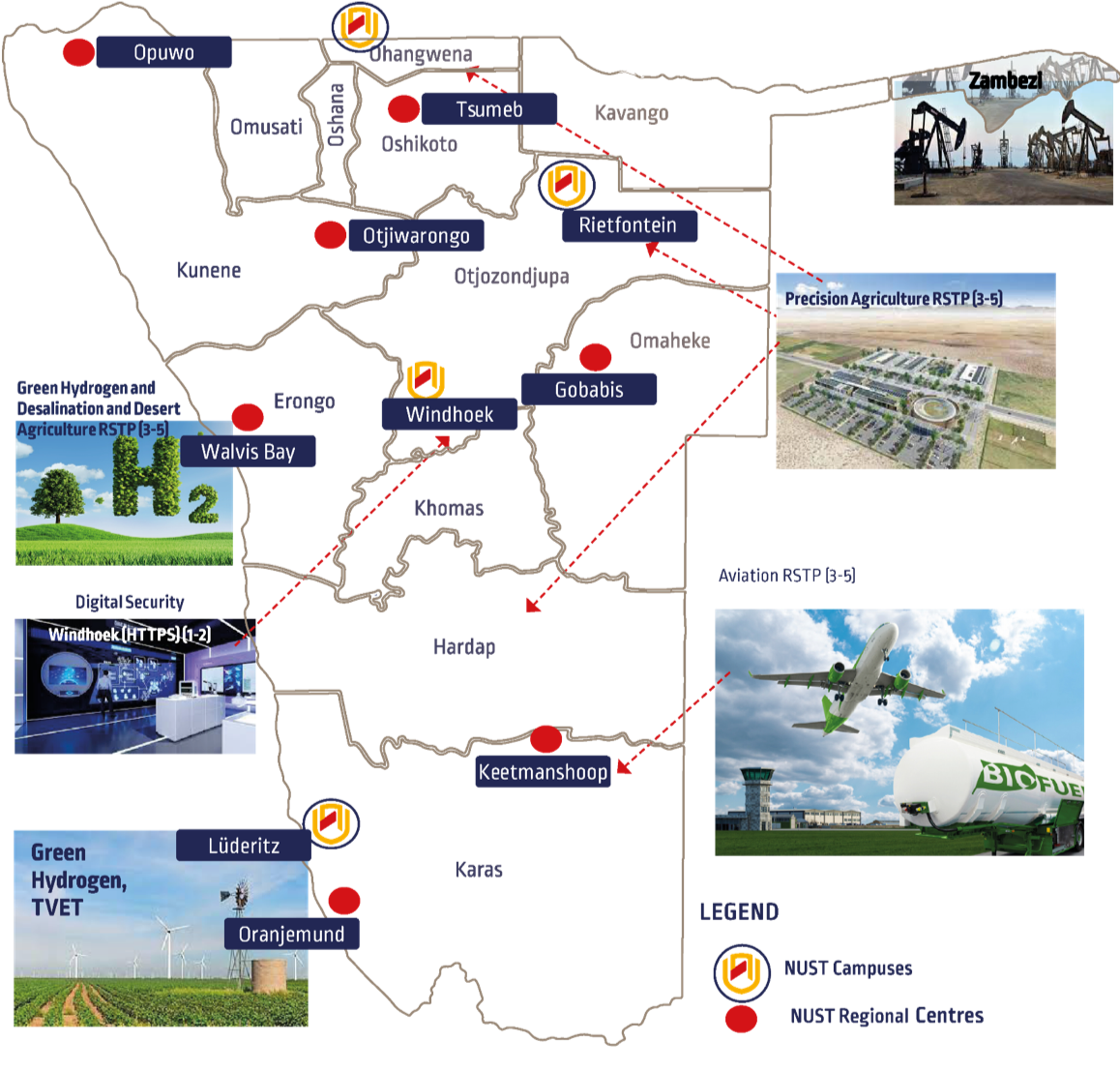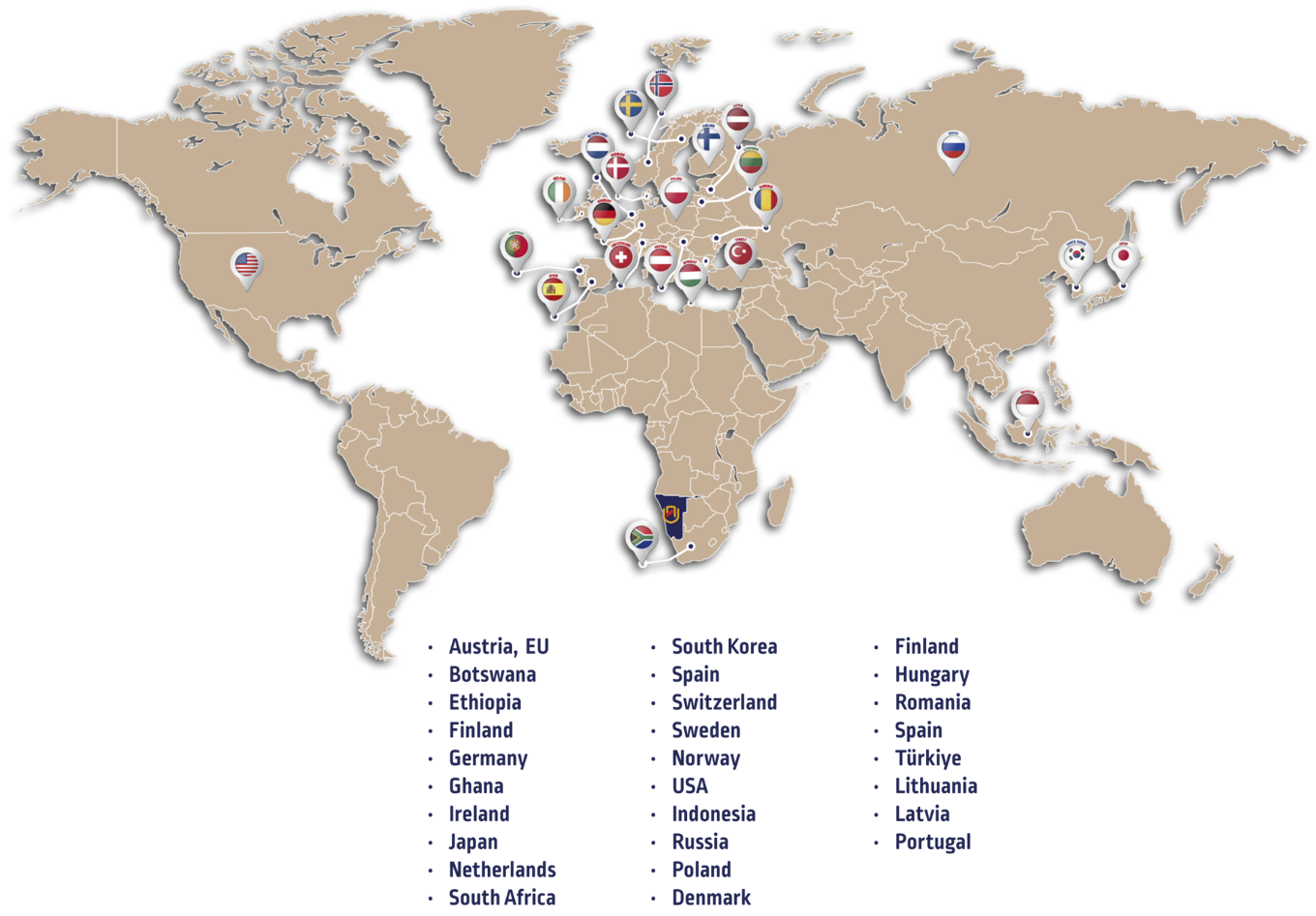NUST Profile
NUST is at the forefront of higher education in Namibia. The University offers various Certificates (under- and post-graduate), Diplomas, Bachelor, Bachelor Honours, Master’s and Doctoral degrees in more than 60 programmes.
NUST is the first Namibian higher education institution to have established a dedicated Quality Assurance Unit; its programmes are accredited by, among others, the National Council for Higher Education (NCHE) and the Namibia Qualifications Authority (NQA). The University enjoys a cherished partnership with industry, public sector and civic society through various initiatives such as curriculum advisory boards, work integrated learning and joint research.
Students are equipped with a blend of contemporary knowledge, skills and competence acquired in classrooms, simulation laboratories, through field work and job attachments, to drive competitiveness in the knowledge economy. NUST graduates are sought after in the Namibian labour market and beyond, and are accepted for further studies in other universities internationally.
- EXCELLENCE: Excellence is the cornerstone of our operations through the delivery of relevant and responsive education.
- INSTITUTIONAL AUTONOMY AND ACADEMIC FREEDOM: We espouse the fundamental values of the freedom to set and implement our own policies and priorities for teaching, research, and community service and freedom of enquiry for students and staff members to pursue their research, teaching, and learning activities.
- COLLEGIALITY: We support and promote the principle and culture of collegiality and integrity among staff members, united with a common purpose of collectively achieving our vision and mission.
- ACCOUNTABILITY AND SUSTAINABILITY: Reflection of sustainability, through exercising prudency and accountability in all facets of our operations is one of our enshrined values for progressive growth and development.
- DIVERSITY: We strongly embrace, uphold and implement the doctrine of diversity in all our endeavours as entrenched in the constitution of the Republic of Namibia.
- Organisation Growth in Research Award @Southern African Research & Innovation Management
- (2022 SARIMA)
- 2024 BEST HIGHER EDUCATION CENTRE - Best of Namibia Awards.
- 2024 BEST UNIVERSITY - Best of 061 Express Followers Choice Awards
Faculty of Commerce, Human Sciences and Education
- Applied Linguistics and Human Capital Development
- Social Justice and Society
- Public, Private Partnership & Economic Development
- Service Quality
- Entrepreneurship and Innovation
Faculty of Computing and Informatics
- Health Informatics
- Enterprise Architectures
- Cybersecurity / Forensics
- Indigenous Knowledge Systems
- ICT4D
- Information Systems
Faculty of Health, Natural Resources and Applied Sciences
- Indigenous Plants
- Environmental Monitoring and Remediation
- Land, Agriculture and Water
- Ecosystems and Biodiversity
- Wildlife and Tourism
Faculty of Engineering and the Built Environment
- Renewable Energy
- Manufacturing Systems
- Water Resource Management
- Development of Appropriate Spatial Tools
- Mining Sustainability and Environmental Impact
Namibian German Institute for Logistics (NGIL)
The Integrated Land Management Institute (ILMI)
India-Namibia Centre for Excellence in Information Technology (INCEIT)
Earth Observation and Satellite Applications Research and Training Centre (EOSA-RTC),
The Biodiversity Research Centre
Centre for Excellence in Mineral Beneficiation (CEMB)
The Namibia Energy Institute (NEI),
Materials Testing Institute (MTI)
Agriculture Trade Policy Institute (ATPI)
Namibia Institute for Space Technology (NIST)
Gender in Digital Technologies
Sustainable water research for climate adaptation and saline agriculture in arid environments
Securing High Performance Computing for Higher Education Research
Technology Co-Design with Indigenous and Marginalised Communities (pending)
One-of-a-kind HTTPS is NUST’s response to to facilitate a functional technology inspired ecosystem for the university industries, development partners and entrepreneurs.
The HTTPS is a partnership with Namibia’s Mobile Telecommunications Company (MTC) and other strategic partners.
NUST’s national footprint extends across Namibia, ensuring accessibility and inclusivity in education. With our main campus as the cornerstone in Windhoek, we’ve strategically established satellite campuses in three key regions.



